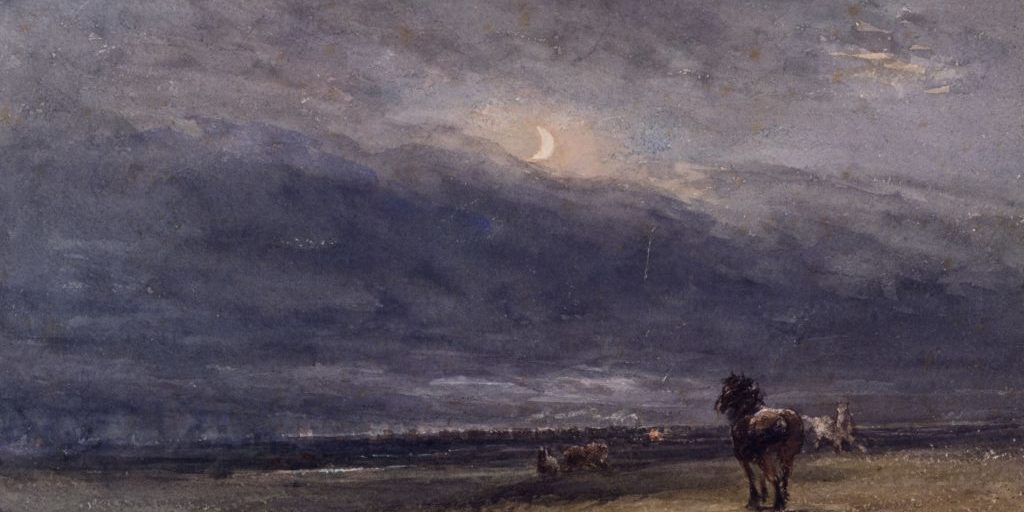
How the Psalms Teach Us to Complain
Not all complaint is bad. Indeed, given the fact that God inspired the psalter for our prayerful use, and since this same psalter is one saturated with complaint, we can be sure that God actually wants for us to complain. There is, of course, a right way to do this, and a wrong way. But whatever we do, we must not de-legitimatize the occasion for the complaint, especially if it is an injustice. The ache and hatred that you feel in your heart for injustice (whether you experience it directly or not) is right, and—strictly speaking—godly. It is not even impious for you to feel sorrow and grief and anger and frustration for being on the receiving side of injustice, dealt out by the hands of wicked people. One of God’s characteristics is a hatred for injustice and unrighteousness, and his impending judgments are something to be longed for, not embarrassed by. Therefore, we should not feel shame or embarrassment for the emotions of grief and outrage; at the bottom, they reflect God and they demonstrate our being made in his divine image.
The Alternative to Sinful Hatred
The exercise of working through, and praying through a psalm of complaint is not an attempt to change the emotion, but rather to channel and direct the emotion in a way that honors God and brings about healing. There is a difference between praying an imprecatory psalm and simply wallowing or indulging in sinful hatred. In fact, we pray these psalms as an alternative to wallowing or indulging in sinful hatred. We do not harbor our emotions of outrage so that they eat away at our own souls, we express them. However, we cannot express these emotions of outrage in venomous words of hatred towards one another, we must express them to God, trusting that he will translate our cries for justice into righteous acts of judgment. In other words, we are complaining about the injustice we have experienced to the only one who can administer justice righteously. We are complaining about the injustice we have experienced to the only one who can administer justice righteously. Click To Tweet As such, our cries and lamentations are an act of entrusting ourselves to his sovereign goodness, with the assurance that our afflictions have been noted and will be accounted for by infinite wisdom.
Consider, for example, Psalm 7. In verses 1-5, the psalmist is first and foremost acknowledging his neediness for God. He is not trying to vindicate or avenge himself, he rather entrusts himself to God for safety, deliverance, and (as we will see) vindication:
O Lord my God, in you do I take refuge;
save me from all my pursuers and deliver me,
lest like a lion they tear my soul apart,
rending it in pieces, with none to deliver.
O Lord my God, if I have done this,
if there is wrong in my hands,
if I have repaid my friend with evil
or plundered my enemy without cause,
let the enemy pursue my soul and overtake it,
and let him trample my life to the ground
and lay my glory in the dust. (Ps. 7:1-5)
Selah
Before he petitions for God’s judgment on his enemy, he willfully places himself under the judicious scrutiny of God—he does not act as his own judge, and he does not want others to act as his judge; rather, he recognizes God’s unmatched qualification to be his judge, and in this, the psalmist is demonstrating that his request for vindication is not a personal vendetta. He is himself willing to be subjected to God’s judgment. Any unrighteousness that he has committed on his part is entrusted to God for his wise judgment. Thus, the psalmist humbles himself and places himself alongside his oppressor: both are under God’s judgment and neither of them are under one another’s judgment.
The Wise Judge
More of the same is said in verses 7-11, except in these verses, the psalmist actually goes a step further to ask God to pour out his judgment upon those who have wronged him. This is right for you to do, as long as this point is kept in mind: by asking God to administer wrath upon his enemies rather than trying to do it himself, the psalmist acknowledges God’s wisdom in judgment:
Let the assembly of the peoples be gathered about you;
over it return on high.
The Lord judges the peoples;
judge me, O Lord, according to my righteousness
and according to the integrity that is in me.
Oh, let the evil of the wicked come to an end,
and may you establish the righteous—
you who test the minds and hearts,
O righteous God!
My shield is with God,
who saves the upright in heart.
God is a righteous judge,
and a God who feels indignation every day. (Ps. 7:7-11)
The psalmist is not trying to usurp God by doing what is properly God’s prerogative, he is begging God to do the right thing in avenging him. God is glorified when he judges his saints’ oppressors, and it is right for his people to long for this glorification (Revelation 18-19 reminds us that this is still true for New Testament believers). Take this as an encouragement to cry out to God; let him hear your complaints for the injustice you have experienced and let him hear your request for vindication, and then trust that God will administer justice better than you could ever imagine.
The psalmist continues to do this in verse 12-16. It should be pointed out that the psalmist in this next section reminds himself of what kind of God he is praying to: he is praying to a just God who actively assures that the wicked who sow wickedness will also reap wrath:
If a man does not repent, God will whet his sword;
he has bent and readied his bow;
he has prepared for him his deadly weapons,
making his arrows fiery shafts.
Behold, the wicked man conceives evil
and is pregnant with mischief
and gives birth to lies.
He makes a pit, digging it out,
and falls into the hole that he has made.
His mischief returns upon his own head,
and on his own skull his violence descends. (Ps. 7:12-16)
This is a reminder to gain perspective. You are not forgotten. Your enemies are not beyond the vision of God. He sees the injustice you have experienced, and he will right every wrong. All accounts will be paid in the end.
Recipients of His Mercy
However, lest this be taken as permission to indulge sinful fantasies of watching your enemies suffer, take note of those first words, “If a man does not repent” (Ps 7:12). This implies that if a man does repent, he will be spared of this gut-wrenching judgment. And this too has serious implications on how we ought to view our oppressors. Should we find joy in a person’s lack of repentance? Should we sit with Jonah, hoping that our enemies don’t find the same mercy in God that we have experienced? Should we grieve when those who have wronged us are humbled by God and receive atonement and reconciliation through Jesus? Of course not.
It may be a comfort (and it is) to know that God is just, and that he will administer his just judgment on the wicked by pouring out his wrath on them in hell. But it should bring much more comfort to know that God often administers his just judgment on the wicked by pouring out his wrath on them in Christ (that is our story as Christians, after all). When the wicked person is united to Christ by faith, all of his sins are crushed on the cross, and the person is resurrected to walk in newness of life. In this case, the sin that is appropriately hated and despised by God and his people is still ferociously attacked, which is precisely what we beg for when we pray imprecatory psalms.
It is right for you to despise the sin that you see in others, and it is right for you to long to see God pour out his full and furious wrath on that sin, but you should never be disappointed if God sees fit to pour out that wrath on Christ on his or her behalf. Such a case is a win-win. In the conversion of the one who does you wrong, you both lose an enemy (when he is put to death–crucified with Christ) and you gain a brother. If it is “unfair” for Christ to taste the wrath of God for the sins of your enemy, it is unjust for him to taste that wrath for your sins as well.
I will give to the LORD the thanks due to his righteousness,
and I will sing praise to the name of the LORD, the Most High. (Ps. 7:17)
Fittingly, this Psalm concludes with praise of God, and a thanksgiving “due to his righteousness.” Let the telos of your cries of anguish be a doxology. Don’t despair if it takes you a while to get to this point. Everything that has been prayed before properly leads to this place, and it must arrive here by the work of the Holy Spirit, so sit in the seat of anguish and lamentation and petitions for judgment and vindication for as long as it takes for you to arrive here, at a place of thanksgiving. Never let your prayers fall short of such an eventual end. Remember, the trials that occasion our complaint before God will be most beneficial to our own souls if it propels us Godward, to a place of entrusting ourselves and all our storm-tossed emotions to the care of a God who hates injustice with such a perfect hatred that we will never understand, and who loves us and sympathizes with our grief much deeper than we will ever know. He loves us, and he is big enough and compassionate enough to handle all of our cries and shouts and aches and moans and groans. Let us entrust overselves to him.

